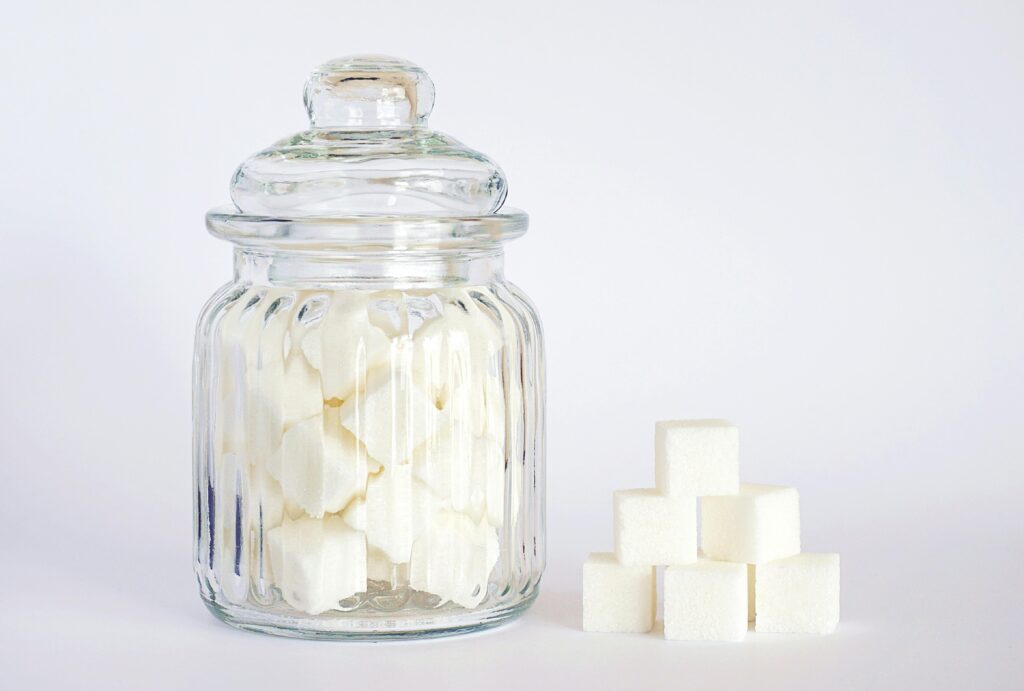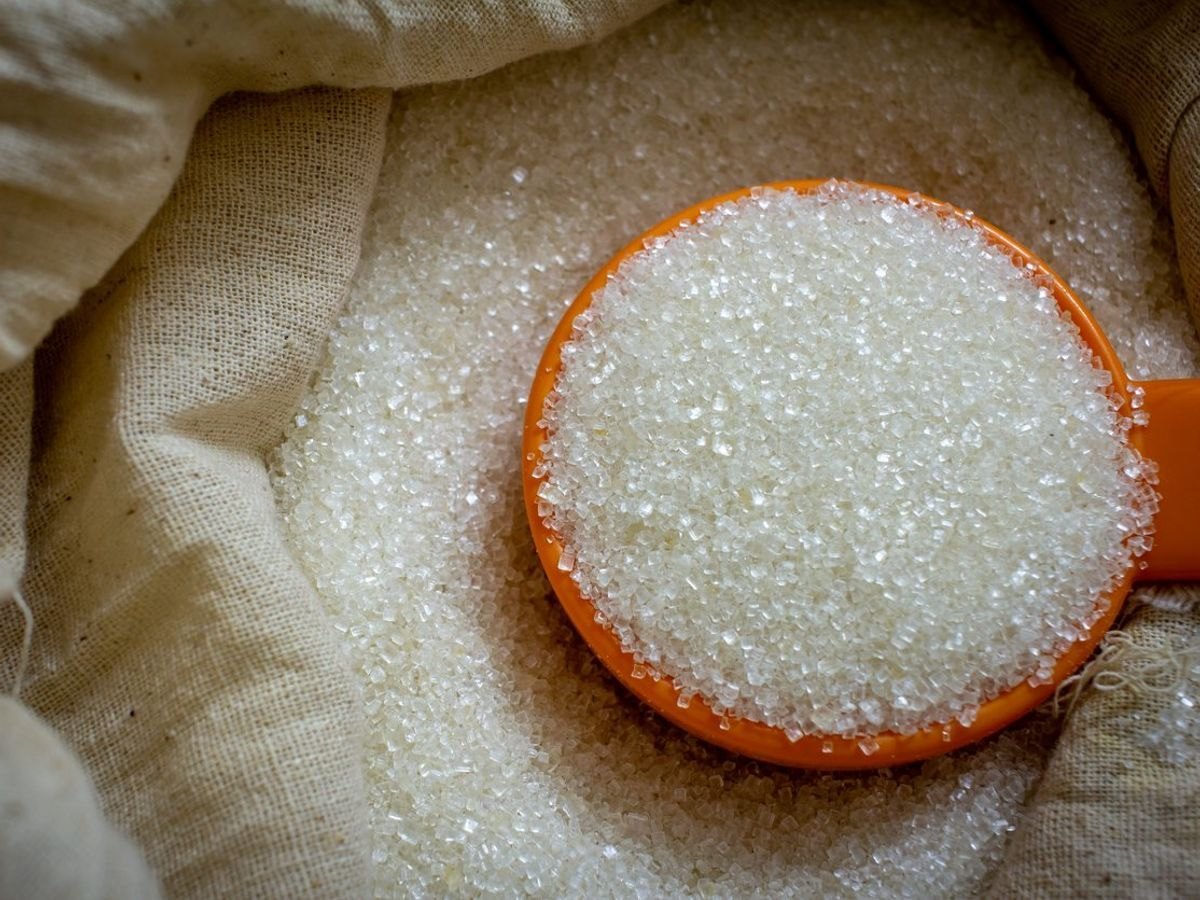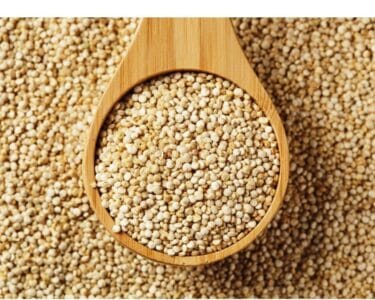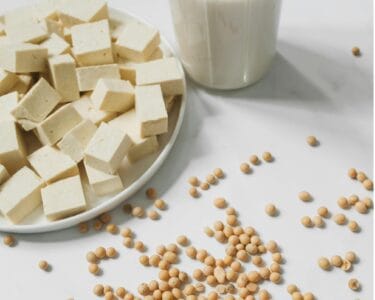
Table sugar, also known as sucrose, is a common sweetener used in households worldwide. It is derived from sugar cane plant through a series of refining processes. This table sugar adds sweetness to a wide variety of foods and beverages, making it a most important in kitchens everywhere.
Source of Table Sugar:
The primary sources of table sugar are sugar cane and sugar beets. These crops are well cultivated in various regions of the world. with major producers including Brazil, India, China, and the United States. Once harvested, the sugar-containing juice or pulp undergoes extraction, purification, and crystallization to yield the familiar white crystals we know as table sugar.
Composition of Table Sugar:
Sucrose, the chemical name for table sugar, is composed of two simpler sugars: glucose and fructose. The monosaccharides combine to form a disaccharide, which is the molecular structure of sucrose. This balanced combination of glucose and fructose gives table sugar its characteristic sweetness.
Understanding Sucrose: The Heart of Table Sugar
Sucrose, as mentioned earlier, is a disaccharide composed of glucose and fructose molecules bonded together.It is a versatile ingredient in cooking and baking. Table sugar is used From desserts to savory dishes, sucrose enhances flavor and adds depth to a wide range of culinary creations.
Monosaccharides vs. Disaccharides: What’s the Difference?
Monosaccharides, such as glucose and fructose, are single sugar molecules that are easily absorbed by the body for energy. Disaccharides, like sucrose, consist of two monosaccharide units bonded together. As for as Disaccharides require additional digestion before they can be utilized by the body. The disaccharides include sucrose, lactose, and maltose.
Glycemic Index of Table Sugar ,Also known as sucrose:
GI , is approximately 65
The glycemic index (GI) measures how quickly carbohydrates in food raise blood sugar levels. Table sugar has a high glycemic index, meaning it can cause a rapid spike in blood glucose levels when consumed. This can be particularly concerning for individuals with diabetes or those trying to manage their blood sugar levels.
This means that consuming table sugar can cause a moderate increase in blood glucose levels compared to consuming foods with a lower GI. However, the glycemic response can vary depending on factors such as portion size, individual metabolism, and the presence of other foods in the meal. table sugar should be consumed in moderation, especially for individuals with diabetes or those monitoring their blood sugar levels.

How The Body Uses Table Sugar:
When consumed, table sugar is broken down into its component sugars, glucose and fructose, by digestive enzymes. These are then absorbed into the bloodstream and then transported to cells throughout the body to provide energy. Excess glucose is stored in the liver and muscles for later use or converted into fat for long-term energy storage.
Health Benefits:
1.Instant Energy Source:Table sugar is a simple carbohydrate that provides a rapid source of energy to body.When consumed , it is broken down into glucose and fructose ,which are readily absorbed into the bloodstream and transported to cells for energy production.
2.Enhanced Athletic Performance:Consuming table sugar before or during physical activity can help improve endurance and performance. The quick-release of energy from sugar can fuel muscles during exercise, leading to increased stamina and reduced fatigue.
3.Improved Cognitive Function:Glucose, derived from sugar, is the primary fuel source for the brain. By Consuming sugar can enhance cognitive function, memory, and concentration, particularly during tasks that require mental focus and alertness.
4.Mood Enhancement:Sugar consumption can stimulate the release of serotonin and dopamine, which are associated with feelings of pleasure and well-being. Enjoying sweet treats in moderation can contribute to a positive mood and emotional balance.
5.Enhances Flavor and Palatability:Sugar adds sweetness and enhances the flavor of foods and beverages, making them more palatable.
6.Preservation of Food:Sugar has been used as a natural preservative to inhibit microbial growth and extend the shelf life of foods.
Strategies to Reduce Sugar Intake In Daily Diet:
Reducing sugar intake can have numerous health benefits, including weight management, improved dental health, and reduced risk of chronic diseases. To minimize sugar consumption, consider the following strategies:
- Choose whole fruits over fruit juices or sweetened snacks.
- Read food labels carefully and opt for products with less added sugar.
- Limit sugary beverages such as soda, sports drinks, and flavored coffee drinks.
- Experiment with natural sweeteners like honey, maple syrup, or stevia in recipes.
Healthy Sugar Intake:
Daily intake of added sugars is limited to 10% of total energy intake

The Role of Sugar in Obesity and Diabetes:
Excessive sugar consumption has been associated with an increased risk of obesity..It can also increase the type 2 diabetes
High intake of sugary foods and beverages can contribute to weight gain and insulin resistance, leading to metabolic imbalances and chronic health conditions.
Reducing sugar intake and opting for healthier alternatives, you can better manage your weight and reduce the risk of diabetes.
Dental Health and Sugar:
Sugar is one of the major product to tooth decay and cavities. When bacteria in the mouth feed on sugar, they produce acids that erode tooth enamel and lead to dental problems. To maintain good oral health, it’s must to limit sugary snacks and beverages. Practice proper dental hygiene, and visit the dentist regularly for check-ups and cleanings.
Heart Health and Sugar:
Sugar is one of the major product to tooth decay and cavities. When bacteria in the mouth feed on sugar, they produce acids that erode tooth enamel and lead to dental problems. To maintain good oral health, it’s must to limit sugary snacks and beverages. Practice proper dental hygiene, and visit the dentist regularly for check-ups and cleanings.
Sugar itself doesn’t directly cause heart disease, excessive consumption can contribute to risk factors such as obesity, high blood pressure, and high cholesterol levels. By reducing the sugar intake and adopting a heart-healthy diet which is rich in fruits, vegetables, whole grains, and lean proteins, individuals can support cardiovascular health and reduce their risk of heart disease.
Sugar and Skin Fairness:
The belief that sugar consumption can affect skin fairness is a topic of disagreement. Some people believe that excessive sugar intake can lead to skin issues such as acne and premature aging, scientific evidence supporting this claim is limited. By Maintaining a good balanced diet, staying hydrated, and practicing good skincare habits are key factors in promoting healthy, radiant skin.
Granulated Sugar Nutrition Facts:
Granulated sugar is primarily composed of sucrose, with minimal amounts of other nutrients. While it provides a quick source of energy, it lacks essential vitamins, minerals, and fiber. Consuming excessive amounts of sugar can contribute to weight gain, tooth decay, and other health issues. Therefore, it’s important to consume table sugar in moderation as part of a balanced diet.
Granulated sugar nutrition facts per 4 grams (approximately 1 teaspoon),according to USDA:
| Nutrient | Amount Per 4 Gram (1 Teaspoon) |
| Calories | 15.8 |
| Saturated Fat | 0.00 gram |
| Carbohydrates | 4.00 gram |
| Sodium | 00.00 mg |
| Cholesterol | 00.00 mg |
| Dietary Fiber | 0.00 gram |
| Trans Fat | 0.00 gram |
| Protein | 0.00 gram |
| Sugars | 4.00 gram |
Please note, These values are approximate and may vary slightly depending on specific type of granulated sugar of different brands.

Sugar can enhance taste and enjoyment. It’s essential to consume it in little quantity to avoid negative health consequences.
So, let’s raise our spoons to a balanced approach to sugar consumption and savor the sweetness of life in all its delicious forms!
For more tips on healthy eating and lifestyle habits, be sure to follow us on social media for daily inspiration and wellness tips!










